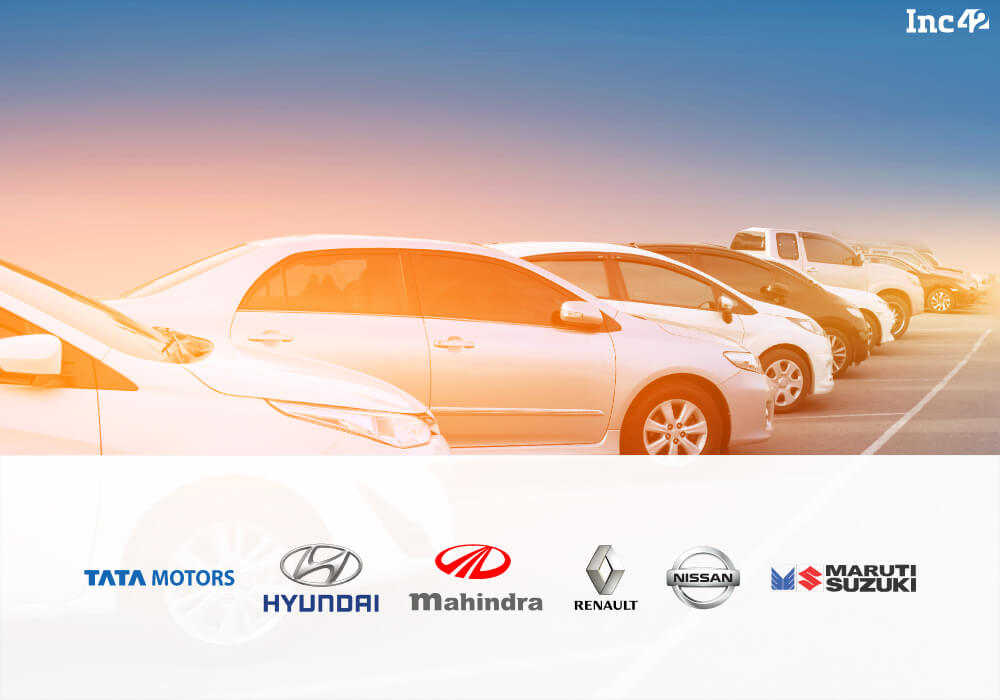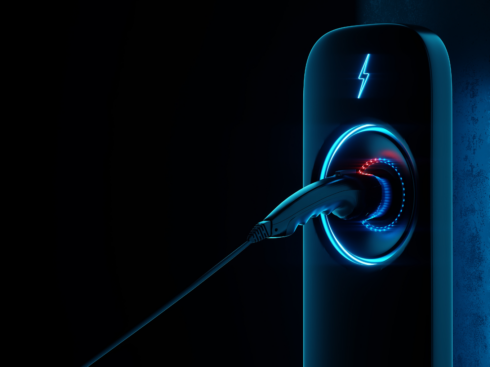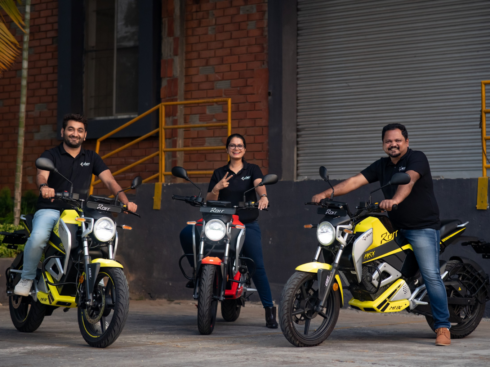SUMMARY
An In-depth Look At Electric Vehicles-Focussed Initiatives And Schemes Launched By The Government Of India
Drawing inspiration from countries like the Norway, China, UK, and France, which are spearheading the much-needed shift from fossil fuel-driven economy to one that is sustainable and eco-friendly with a view to mitigate climate change, the Indian government, over the last few years, has been increasingly promoting alternative mobility solutions, chief among them electric vehicles (EVs).
And with good reason. According to WHO data, 14 Indian cities are among the world’s 20 most polluted. According to a November 2017 report entitled ‘India: Health of the Nation’s States’, there has been a 17% rise in deaths and disabilities due to diseases caused by air pollution across the country.
The good news is that EVs, which are powered by electricity and not fossil fuels, and therefore relatively emission-free, might help India undo some of the damage, or at least slow it down. What’s even better, in a recent market research survey, 90% of 2,200 respondents said they were willing to switch to EVs given the right infrastructure.
Realising the “urgent need to re-think and revisit transport infrastructure and fuel dependency” as well as the potential of EVs in doing this, the Indian government has announced plans to make the country a 100% EV nation by 2030. In line with this, in Union Budget 2018, the government allocated $40.5 Mn towards the development of electric and hybrid vehicles in the country.
If the plans materialise, the shift to electric vehicles could potentially help India save up to $300 Bn (INR 20 Lakh Cr) in oil imports and nearly one gigatonne of carbon dioxide emissions by 2030, according to a recent report by FICCI and Rocky Mountain Institute.
We, at Inc42, are tracking developments in EVs actively. In this second article in a series aimed at exploring the electric vehicle landscape in India, we give readers a rundown of the key initiatives launched by the government to promote the adoption of EVs and other sustainable mobility solutions in the country.
National Electric Mobility Mission Plan (NEMMP) 2020
The first step taken by the Indian government to bring electrically-powered vehicles into the mainstream was the National Electric Mobility Mission Plan (NEMMP) 2020. Launched in 2013, the plan aims to achieve national fuel security by promoting hybrid and electric vehicles in the country. To attain this, the government, set a target of sales of 6 Mn-7 Mn hybrid and electric vehicle per annum from 2020 onwards. With a cumulative sales target of 15 Mn-16 Mn by 2020, the initiative also promised a fiscal and monetary incentives to encourage technological innovation.
Additionally, NEMMP 2020 aims to save up to 9.5 Bn litres of crude oil, equivalent to $9.3 Bn (INR 62,000 Cr), within the stipulated time period. Additionally, it plans to lower vehicular emissions and decrease carbon dioxide emissions by 1.3% to 1.5% by 2020. According to the plan, the government not only wants to reduce the country’s fuel dependency on imports but ultimately help lower greenhouse gas (GHG) emissions in India.
To this end, the Indian government and the automotive industry agreed to jointly invest up to $3.4 Bn (INR 23,000 Cr) to develop a robust EV ecosystem in India. Of this, the government committed to pump up to $2.1 Bn (INR 14,000 Cr) over the next five to six years, with the remaining coming from the auto industry.
FAME India Scheme For Faster Adoption Of EVs
The NEMMP 2020 spawned off the Faster Adoption and Manufacturing of (Hybrid &) Electric Vehicles (FAME) scheme with an initial outlay of $11.2 Mn (INR 75 Cr) in the Union Budget for 2015-16. Essentially, the FAME scheme has been instituted to encourage buyers to buy electric vehicles over traditional fuel-based cars. The scheme aims to provide a major push for the early adoption and market creation of both hybrid and electric technologies vehicles in the country.
FAME India aims to help the country’s EV market achieve self-sufficient economies of scale by 2020 through demand incentives, in-house technology development, and domestic production. In keeping with this goal, the Indian government has been offering substantial discounts and subsidies to both auto manufacturers and vehicle owners in the country. FAME has four main focuses — technology development, demand creation, pilot projects and charging infrastructure.
The scheme is applicable to all Indian cities and towns including Delhi, Mumbai, Kolkata, Chennai, Bengaluru, Hyderabad, Ahmedabad, and others with more than 1 Mn population. It applies to all electric vehicle segments i.e. two, three, and four-wheelers, cars, light commercial vehicles (LCVs), buses, etc.
At present, the government is all set to roll-out Phase II of FAME with an investment of $1.3 Bn (INR 9,381 Cr) that is expected to span five years. In what could be good news for startups, FAME Phase II has proposed setting up of a venture capital fund of INR 500 Cr for development of a manufacturing base for zero-emission vehicles and their components, taking prototypes to manufacturing, and development of R&D among others.
Phase I of the FAME-India Scheme was rolled out for a two-year period between April 1, 2015, and March 31, 2017, with an approved outlay of $119 Mn (INR 795 Cr). Of the total funds, $39 Mn (INR 260 Cr) was utilised in 2015-2016 while the remaining was deployed in the second year.
In December 2017, the government announced it would provide $65.4 Mn (INR 437 Cr) worth subsidies to 11 cities under Phase 1 of FAME for launching 390 electric buses, 370 taxis and 720 three-wheelers. These cities include Delhi, Ahmedabad, Bangalore, Jaipur, Mumbai, Lucknow, Hyderabad, Indore, and Kolkata, besides two cities — Jammu and Guwahati — in the special category.
A part of the funds was also provisioned for the development and the promotion of hybrid vehicles in 2015-2017. Almost 60% of the total funds under Phase I of FAME India were allocated towards demand incentives. Under the first phase, the incentive was extended to over 150.5K electric and hybrid vehicles till July 26, 2017.
Interestingly, several state governments have also expressed interest in procuring EVs under FAME India. For instance, in January 2018, the Karnataka government announced that it would purchase 640 electric vehicles — 40 buses, 100 cars, and 500 three-wheelers — under FAME.
Global Tenders For 20,000 Electric Vehicles
With a view to put more than 1 Mn electric three-wheelers and 10,000 electrically-powered city buses on the country’s roads by mid-2019, the government has been floating global tenders for sourcing of EVs. In September 2017, Energy Efficiency Services Limited (EESL), a joint venture of NTPC, Power Finance Corporation, Rural Electrification Corporation, and POWERGRID, floated the country’s first global tender to procure up to 10,000 EVs and 4,000 charging stations. A month later, the government also invited snap bids for 300 electric vehicle chargers as part of Phase 1 of the tender.
At the time, six of the country’s leading automakers, including Tata Motors, Renault, Hyundai, Nissan, Maruti Suzuki, and Mahindra & Mahindra, expressed interest in partnering with the government on the project. Additionally, reports stated that the government was gearing up to float a tender for up to 50,000 electric three-wheelers by December 2017.
The tender was eventually awarded to Tata Motors, while Mahindra said it would match Tata Motors’ lowest bid of $15,534 (INR 10.16 Lakh) per vehicle. While Phase 1 of the tender involved the procurement of 500 electric vehicles that are to be deployed across Delhi/NCR, the second phase entailed a nationwide rollout of 9,500 EVs in the later half of 2018. The second batch was supplied to the government sometime in February 2018.
Incentives For Buyers: 12% GST On EVs Vs 28% On Petrol And Diesel Cars
One of the biggest direct incentives to buyers provided by the government to promote electric vehicles in the country, the government slashed GST on electric vehicles dramatically to 12%. Compared to that, petrol and diesel vehicles currently carry a GST of 28%. The government is also considering offering benefits that include zero import duties on EVs.
Welcoming the move, Vinod K. Dasari, president of the Society of Indian Automobile Manufacturers (SIAM), said at the time, “Differential GST for electric vehicles will also help electric mobility gain momentum in India. We would have liked to see a similar differential duty on hybrid vehicles to continue. The government has always encouraged environmentally friendly technologies and with the current focus on reducing emissions of greenhouse gases and reducing carbon footprint, one would have expected the lower taxation to continue on such vehicles in a technology agnostic manner.”
This move has not only encouraged consumers to consider EVs as a feasible alternative to internal combustion engine-based cars but has also greatly facilitated the development of EVs and EV components domestically. It must be noted, however, that hybrid vehicle are currently taxed at 43%, which is largely seen as a major deterrent for automobile manufacturers looking to enter the Indian EV market.
How Corporates Are Ushering In A New Era Of Zero-Emission EVs
The Big Players
Supporting the government in shouldering the responsibility of making India an all-electric vehicle nation are corporates and automotive giants that have been around for decades. One name that stands out is Mahindra and Mahindra. As the country’s first EV manufacturer, Mahindra has not only helped bring EVs to the mainstream. It has, in many ways, set the stage for other companies to join the EV bandwagon.
Mahindra’s EV manufacturing arm came into existence in 2010, when Reva Electric Car Company was acquired and rebranded as Mahindra Electric Mobility Limited. Based in Bengaluru, the company had sold 4,000 units of its first EV, REVAi Electric Car, in 26 different countries by March of 2011.
Two years later, Mahindra Electric launched e2o, an electric hatchback which was later upgraded to e2oPlus. Other EVs under the Mahindra brand include the electric sedan eVerito and the electric commercial vehicle for passengers and cargo, eSupro. Last November, Mahindra Electric announced plans to launch two new models of electric vehicles in India soon.
Elaborating on the company’s EV drive, group chairman Anand Mahindra had said last year: “We’ve just been believers for a while, haven’t been making any money, but now the tipping point seems to be reached. This is not a trade-off. This is the single biggest business opportunity for the next couple of decades. Anyone not looking at these opportunities is going to miss out on growth.”
According to sources, the Mumbai-based automaker is currently in the process of developing an EV version of its micro SUV KUV100, which will be launched sometime in the next 12 months. The second model, which will be available commercially by 2019, is being built by Mahindra-owned Italian premium car design firm Pininfarina.

Mahindra:
Tata Motors is another homegrown automotive giant that is aggressively trying to capitalise on the country’s growing EV market opportunity. In August 2017, reports surfaced that Tata Motors was conducting a road test of its Nano EV in Coimbatore, which was successfully performed.
At the time, it was said that with Nano EV, Tata Motors was looking to boost sales of Nano, which has been dropping steadily over the last few years. Later, in November 2017, the automotive company announced a partnership with Coimbatore-headquartered Jayem Auto to launch an EV version of Tata Nano called Jayem Neo. After winning EESL’s tender, in December 2017, Tata Motors supplied its first batch of 350 TigorEVs to the Indian government.
Recently, at this year’s Auto Expo, Tata Motors presented a range of six electric vehicles across personal as well as mass mobility categories. It reportedly showcased as many as 26 smart mobility solutions in passenger and commercial car segments.
Maruti Suzuki, formerly known as Maruti Udyog Limited, is another notable corporate making its mark in the country’s EV sector. According to reports dated September 2017, the Japanese parent of Maruti India, Suzuki Motor, was gearing up to manufacture EVs at a factory in Gujarat.
Touted as Suzuki’s first commercially-available EVs, the cars will be sold in both Indian and global markets. Previously, in 2010, the automotive giant showcased an electric version of Swift, known as Swift REEV or Range Extender, which didn’t make it beyond the development phase.
The Delhi-headquartered carmaker, however, has not disclosed a specific timeline by when it would start manufacturing electric vehicles. Its entry into the country’s fast-growing EV market, as per Maruti Suzuki Chairman and CEO R C Bhargava, could help push Maruti’s profit growth.
And the smaller ones
Back in August 2017, when most automobile players in the country were still debating whether to enter the EV market or not, Mumbai-headquartered JSW Energy, a division of the Sajjan Jindal-led JSW Group, announced plans to launch EVs by 2020. To diversify its business operations into EVs and renewable energy storage, the company also committed $545.72 Mn-$623.68 Mn (INR 3,500 Cr-INR 4,000 Cr) for the next three years. In March 2018, JSW Energy acquired JSW Electric Vehicles Private Ltd to further strengthen its presence in the EV, energy storage, and infrastructure segments.
Last year, JSW Energy joint MD and CEO Prashant Jain told Inc42, “We have been seeing very limited space for growth in the power sector. We will start with around 60% localisation in India. We are considering and evaluating opportunities for setting up a manufacturing facility in several states, including Maharashtra, Gujarat and Rajasthan, and also Tamil Nadu and Andhra Pradesh.”
Another company that is looking to tap into the EV market is Ashok Leyland. Owned by the Hinduja Group, the Chennai-headquartered company promised to invest $61.5 Mn-$77 Mn (INR 400 Cr-INR 500 Cr) to bolster its EV business in October 2017. Spread over the course of the next three to five years, the investment is aimed at making the company “future ready”.
Elaborating further, Ashok Leyland MD Vinod Dasari stated during a media interaction last year, “We are preparing ourselves for the EV movement that is going to happen over the next five to 10 years. It’s a question of survival, so we will invest at least $61.5 Mn to $77 Mn over the next three to five years.”
Taking cue from these companies, in March 2018, Essel Infraprojects, a subsidiary of Essel Group, revealed plans to enter the EV segment with a $651.6 Mn (INR 4,250 Cr) investment. The capital, as per people close to the development, will be utilised for installation of charging stations and to manufacture e-buses and e-rickshaws.
Of this, around $460 Mn (INR 3,000 Cr) will be spent to introduce 1,000 e-buses from intrastate Uttar Pradesh to the NCR region. To this end, Essel Infraprojects has signed an MoU with the UP government. It will also be investing $76.6 Mn (INR 500 Cr) to develop e-rickshaws and battery charging and swapping stations across the region. An additional $115 Mn (INR 750 Cr) will be spent on setting up bus terminals in the state.
India’s EV Market: An Attractive Destination For Foreign Players
Concomitant with the growing interest among corporates in the potential of electric vehicles, several international automobile giants — including the likes of Honda, Renault, Hyundai, Nissan, IKEA, Volkswagen, and Jaguar Land Rover, among others — have expressed interest in introducing futuristic electric mobility solutions in India.
Japanese carmaker Honda, for instance, has announced plans to set up a lithium-ion battery manufacturing facility in India. It has also joined hands with Nissan to build solid-state batteries for electric vehicles. Honda Cars India, the Indian arm of the Minato-headquartered automotive giant, is currently trying to identify the type of EVs that would be best suited for Indian roads.
According to an earlier announcement by Honda, EVs will account for up to 65% of the company’s overall sales by 2030, with 15% being pure electric and the remaining being hybrid, plug-in hybrid, and fuel-cell powered cars.
Nissan, on the other hand, might set up a digital hub in Kerala soon. A Nissan delegation led by corporate VP and chief information officer Tony Thomas met state officials in March to explore further possibilities around the deal. Earlier, in November 2017, corporate VP and global head of Nissan-owned Datsun, Jose Roman had said that the Indian government’s initiative to transition fully to EVs by 2030 was definitely “doable”, at least in the major cities.
Swedish furniture company IKEA, an unlikely name in the EV sector, announced that around 20% of its customer delivery fleet in its first year of operations in India would be EVs. The company is set to open its first store in Hyderabad in mid-2018.
In March, South Korean auto giant Hyundai showcased two electric vehicles — Nexo and Ioniq — at the India Korea business summit in New Delhi. While Nexo is a next-gen fuel cell-powered EV, Ioniq is a battery-driven vehicle.
Luxury car brand of Volkswagen Group, Porsche, on the other hand, is reportedly gearing up to launch an electric vehicle in India by 2020. Confirming the development, Porsche India Director Pavan Shetty said at the time, “We will launch a fully electric car in India in the beginning of 2020. This is a part of the Mission-E of the company.”
EVs May Be Purring Now But Are Revving To Pick Up Speed
The EV market is expected to record double-digit growth rates with rise in sales volume annually in India till 2020, according to ASSOCHAM-EY joint study. The study, entitled Electric Mobility in India: Leveraging Collaboration and Nascency, further said that despite EVs not being mainstream, stricter emission norms, reducing battery prices, and increasing consumer awareness are driving EV adoption in India.
Currently, the electric vehicle industry in the country is at a nascent stage, comprising just 1% of the total vehicle sales and is dominated by two-wheelers (95%). However, thanks to the government’s sustained efforts, coupled with the growing interest of both homegrown and international automobile players in the sector, EVs will undoubtedly be a crucial stepping stone in designing an intelligent futuristic transport infrastructure in India.
This article is the second in a series dedicated to the analysis of the electric vehicle landscape in India. In the next article, we will explore the different policies instituted by various state governments in India, while also delving into the policy hurdles at the central government level and the overall challenges that need to be overcome.



























